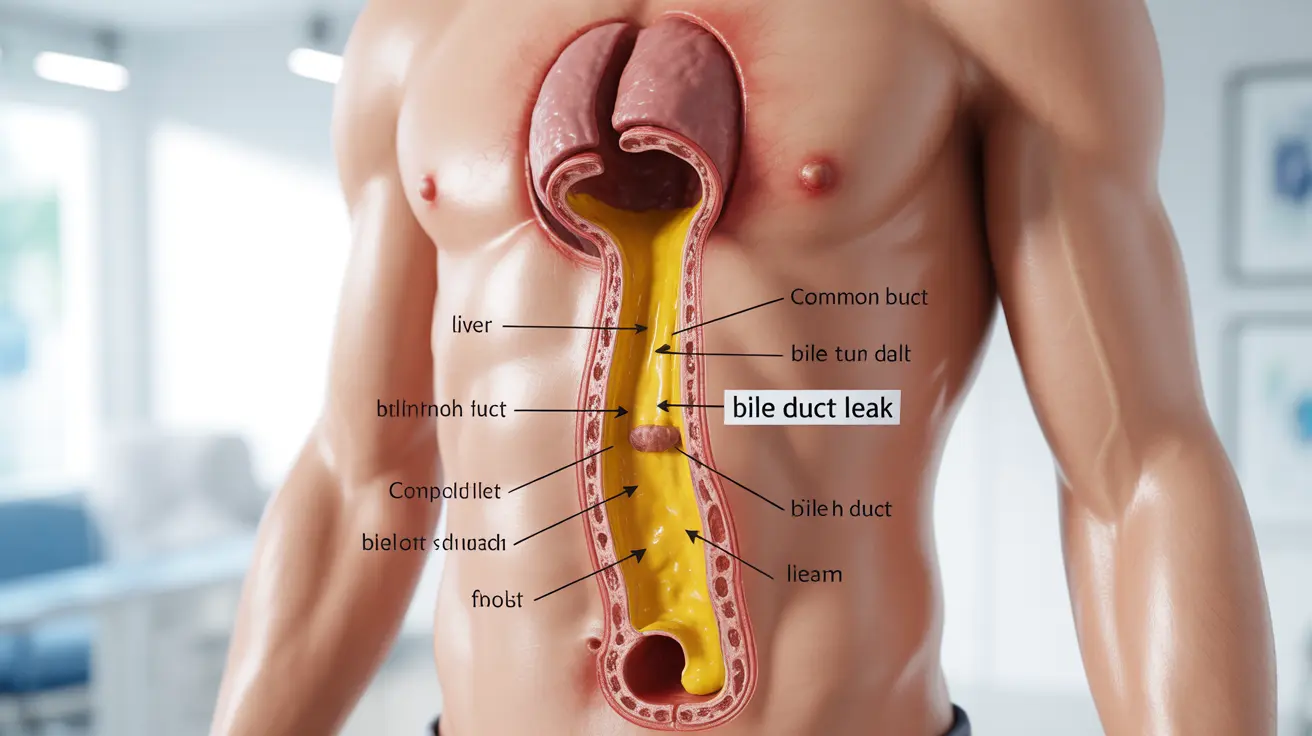A bile duct leak is a serious medical condition that occurs when bile escapes from damaged bile ducts, potentially causing severe complications if left untreated. While this condition often develops as a complication of gallbladder surgery, understanding its nature, symptoms, and treatment options is crucial for anyone experiencing or at risk for this condition.
In this comprehensive guide, we'll explore whether bile duct leaks can heal independently, what symptoms to watch for, and when medical intervention becomes necessary. This information will help you make informed decisions about your health care needs.
What Is a Bile Duct Leak?
A bile duct leak occurs when damage to the bile duct system allows bile to escape into the abdomen. Bile is a digestive fluid produced by the liver that aids in fat digestion and helps remove waste products from the body. When this vital fluid leaks, it can cause inflammation and potentially serious complications.
Common Causes of Bile Duct Leaks
Several factors can lead to bile duct leaks, with the most common including:
- Complications from gallbladder surgery (cholecystectomy)
- Trauma to the liver or bile duct system
- Complications from liver transplantation
- Tumor-related damage to the bile ducts
- Inflammatory conditions affecting the bile ducts
Signs and Symptoms to Watch For
Recognizing the symptoms of a bile duct leak is crucial for early intervention. Common indicators include:
- Severe abdominal pain
- Fever and chills
- Nausea and vomiting
- Abdominal swelling
- Jaundice (yellowing of the skin and eyes)
- Unexplained weight loss
- Dark urine or light-colored stools
Natural Healing vs. Medical Intervention
While the body has remarkable healing capabilities, bile duct leaks typically require medical intervention. Small leaks may occasionally seal themselves under specific circumstances, but this is not common and should not be relied upon as a treatment strategy.
The risk of complications from an untreated bile duct leak is significant and can include:
- Peritonitis (abdominal cavity inflammation)
- Infection
- Sepsis
- Organ damage
- Severe pain and discomfort
Treatment Approaches
Treatment options for bile duct leaks vary depending on the severity and location of the leak. Common approaches include:
Conservative Management
This may be attempted for very small leaks under close medical supervision, including:
- Careful monitoring
- Nutritional support
- Antibiotics when necessary
Minimally Invasive Procedures
These are often the first-line treatment, including:
- Endoscopic retrograde cholangiopancreatography (ERCP)
- Stent placement
- Drainage procedures
Surgical Intervention
Surgery may be necessary when other treatments fail or in severe cases, involving:
- Surgical repair of the damaged duct
- Reconstruction procedures
- Addressing underlying causes
Frequently Asked Questions
Can bile duct leaks heal by themselves without surgery or invasive treatment? While very small leaks might occasionally heal on their own, most bile duct leaks require medical intervention. The risks of waiting for spontaneous healing typically outweigh any potential benefits.
What are the common symptoms that might indicate a bile duct leak after gallbladder surgery? Key symptoms include abdominal pain, fever, nausea, jaundice, and unexplained fluid accumulation in the abdomen. These symptoms typically appear within days to weeks after surgery.
How do doctors diagnose a bile duct leak and what tests are usually performed? Doctors typically use imaging studies such as HIDA scans, CT scans, and MRCP (magnetic resonance cholangiopancreatography). Blood tests and ERCP may also be used for both diagnosis and treatment.
What are the typical treatment options for a leaking bile duct, and when is surgery necessary? Treatment options range from endoscopic procedures to surgical repair. Surgery becomes necessary when minimally invasive treatments fail or when the leak is severe. The specific approach depends on the leak's location and severity.
What are the risks of leaving a bile duct leak untreated, and when should I seek immediate medical help? Untreated bile duct leaks can lead to serious complications including infection, peritonitis, and sepsis. Seek immediate medical attention if you experience severe abdominal pain, fever, jaundice, or other concerning symptoms, especially after gallbladder surgery.




